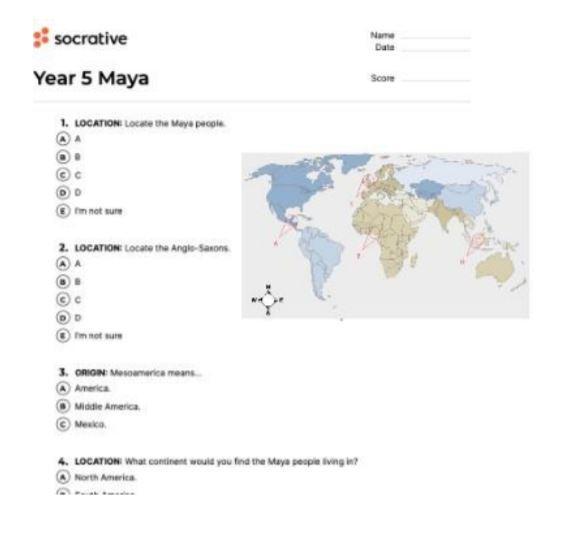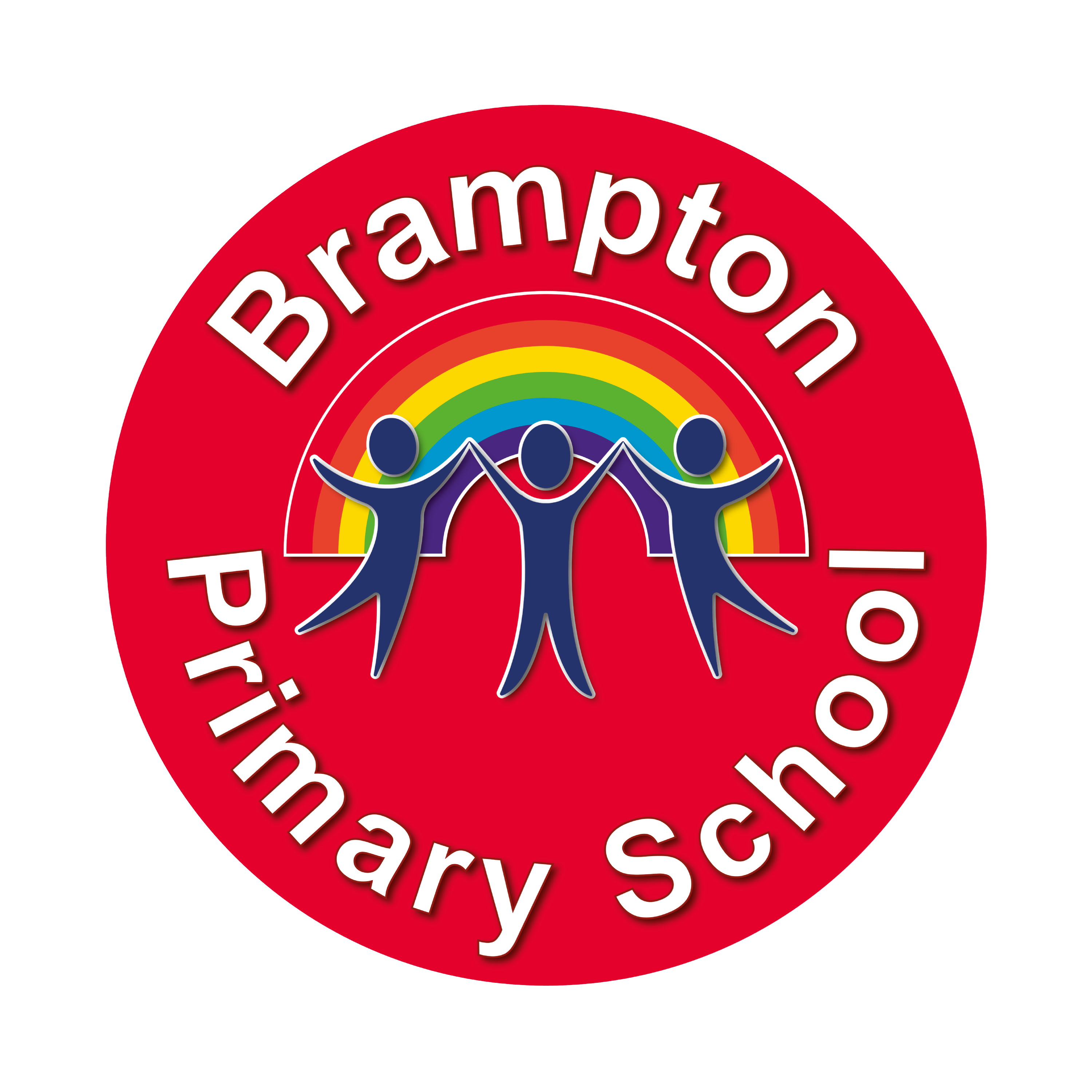History

Intent
At Brampton Primary School, we believe a high-quality History education will help pupils gain a coherent knowledge and understanding of Britain’s past and that of the wider world. It should inspire pupils’ curiosity to know more about the past. Teaching should equip pupils to ask perceptive questions, think critically, weigh evidence, sift arguments, and develop perspective and judgement. History helps pupils to understand the complexity of people’s lives, the process of change, the diversity of societies and relationships between different groups, as well as their own identity and the challenges of their time.
Aims of the History Curriculum
The national curriculum for history aims to ensure that all pupils:
- know and understand the history of Britain as a coherent, chronological narrative, from the earliest times to the present day: how people’s lives have shaped this nation and how Britain has influenced and been influenced by the wider world
- know and understand significant aspects of the history of the wider world: the nature of ancient civilisations; the expansion and dissolution of empires; characteristic features of past non-European societies; achievements and follies of mankind
- gain and deploy a historically grounded understanding of abstract terms such as ‘empire’, ‘civilisation’, ‘parliament’ and ‘peasantry’
- understand historical concepts such as continuity and change, cause and consequence, similarity, difference and significance, and use them to make connections, draw contrasts, analyse trends, frame historically-valid questions and create their own structured accounts, including written narratives and analyses
- understand the methods of historical enquiry, including how evidence is used rigorously to make historical claims, and discern how and why contrasting arguments and interpretations of the past have been constructed
- gain historical perspective by placing their growing knowledge into different contexts, understanding the connections between local, regional, national and international history; between cultural, economic, military, political, religious and social history; and between short- and long-term timescales.
Key Stage One
Pupils should develop an awareness of the past, using common words and phrases relating to the passing of time. They should know where the people and events they study fit within a chronological framework and identify similarities and differences between ways of life in different periods. They should use a wide vocabulary of everyday historical terms. They should ask and answer questions, choosing and using parts of stories and other sources to show that they know and understand key features of events. They should understand some of the ways in which we find out about the past and identify different ways in which it is represented.
Key Stage Two
Pupils should continue to develop a chronologically secure knowledge and understanding of British, local and world history, establishing clear narratives within and across the periods they study. They should note connections, contrasts and trends over time and develop the appropriate use of historical terms. They should regularly address and sometimes devise historically valid questions about change, cause, similarity and difference, and significance. They should construct informed responses that involve thoughtful selection and organisation of relevant historical information. They should understand how our knowledge of the past is constructed from a range of sources.
Historical Knowledge and Skills
Across Key Stage 1 and 2, pupils will be taught to:
Vocabulary
- Use an increasing range of common words and phrases relating to the passing of time.
- Describe memories of key events in his/her life using historical vocabulary.
- Communicate his/her learning in an organised and structured way, using appropriate terminology.
- Use historical terms related to the period of study.
- Present findings and communicate knowledge and understanding in different ways.
Chronological Understanding
- Show awareness of the past, using common words and phrases related to the passing of time.
- Describe where the people and events studied fit within a chronological framework and identify similarities and differences between ways of life in different periods.
- Place some historical periods in a chronological framework.
- Use dates to order and place events on a timeline.
Historical Enquiry
- Ask and answer questions, choosing and using parts of stories and other sources to show that they know and understand key features of events.
- Show understanding of some of the ways in which we find out about the past and identify different ways in which it is represented.
- Use sources of information in ways that go beyond simple observations to answer questions about the past.
- Use a variety of resources to find out about aspects of life in the past.
- Compare sources of information available for the study of different times in the past.
Historical interpretations
- Describe significant historical events, people and places in their own locality.
- Understand that sources can contradict each other.
- Make comparisons between aspects of periods of history and the present day.
- Understand that the type of information available depends on the period of time studied.
- Evaluate the usefulness of a variety of sources.
- Provide an account of a historical event based on more than one source.
- Give some reasons for some important historical events.
Spaced Retrieval Practice Approach
Our CUSP Curriculum is delivered in modules, rotating through each subject area in Science, History, Geography. All History modules are identified using purple boxes on our curriculum maps. Below is how our curriculum delivers (introduces and revisits) the National Curriculum expectations within and across year group.
History - Implementation
Modular Approach – Knowledge
At Brampton Primary School, History is taught across each year group in modules that enable pupils to study in depth key historical understanding, skills and vocabulary. Each module aims to activate and build upon prior learning, including EYFS, to ensure better cognition and retention. Each module is carefully sequenced to enable pupils to purposefully layer learning from previous sessions to facilitate the acquisition and retention of key historical knowledge and events. Modules are revisited either later in the year or in the following year as part of a spaced retrieval practice method to ensure pupils retain key knowledge and information. History is studied chronologically and comparisons are made between different time periods and cultures including linking to other subject areas such as Geography and Design & Technology. This is referenced in our planning sequences.
Linking to previous learning and across subjects – EYFS to Year 1
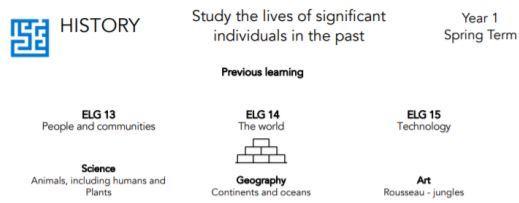
Linking to previous learning Year 3-4 in Year 5
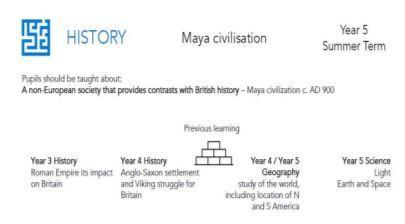
Subject Skills
As well as ensuring pupils are taught key knowledge, each module is designed to offer pupils the opportunity to develop their skills as an Historian by understanding chronology, undertaking enquiry, using historical evidence and making connections in their learning.
Pupils are taught to think critically, using a range of sources to draw conclusions and are encouraged to make connections across the curriculum, for instance, understanding how technology has been influenced and developed due to historical events or discoveries.
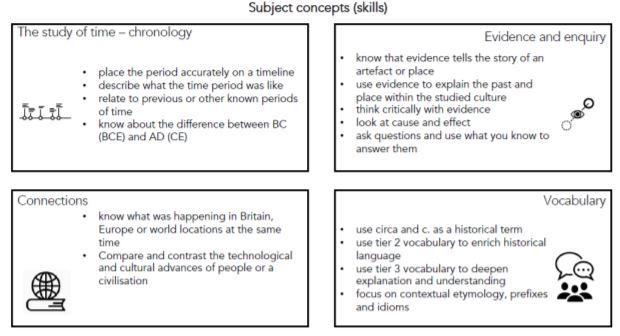
Cumulative Quizzing (Supporting Cognitive Load)
At the start of each module, pupils undertake a short quiz, using platforms such as Socrates, to establish prior knowledge and understanding of the module content. Throughout each module pupils continually revisit previous content to reinforce key knowledge and vocabulary. At the end of the module, pupils take another quiz to check their understanding and knowledge. This approach allows pupils to utilise effective cognitive load and ensure retention.
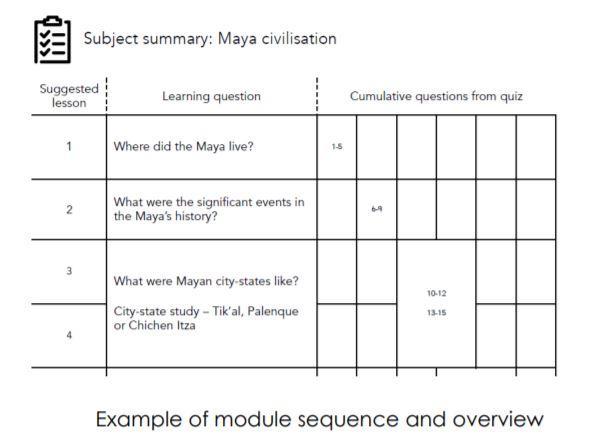
Knowledge Organisers and Knowledge Notes
Accompanying each module is a Knowledge Organiser which contains key vocabulary, information and concepts which all pupils are expected to understand and retain. Knowledge notes are the elaboration and detail to help pupils acquire the content of each module. They support vocabulary and concept acquisition through a well-structured sequence that is cumulative. Each Knowledge Note begins with questions that link back to the cumulative quizzing, focussing on key content to be learnt and understood. Knowledge Organisers and Knowledge Notes are dual coded to provide pupils with visual calls to aid understanding and recall.
Knowledge Organisers and Knowledge notes are referenced throughout each module and copies of the Knowledge Organiser are shared with the children in class on displays and sometimes in books to support with ongoing learning and recall.
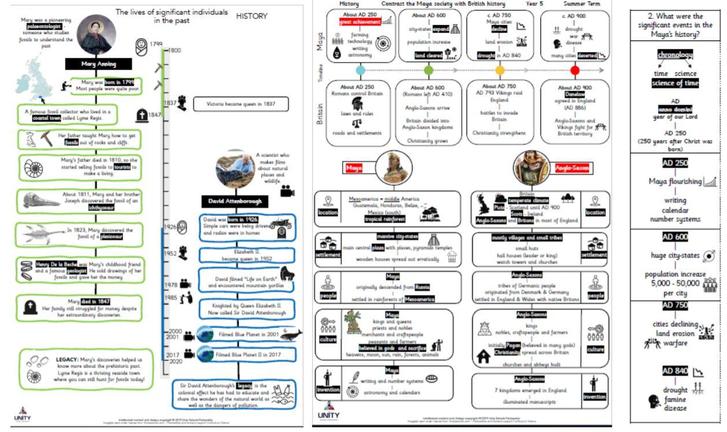
Vocabulary
Vocabulary forms a key part of our wider curriculum. Subject specific Tier 2 and Tier 3 words are incorporated in each module and pupils are encouraged to develop their own ‘Vital Vocabulary’ lists along with dual coding to expand their history vocabulary repertoire.
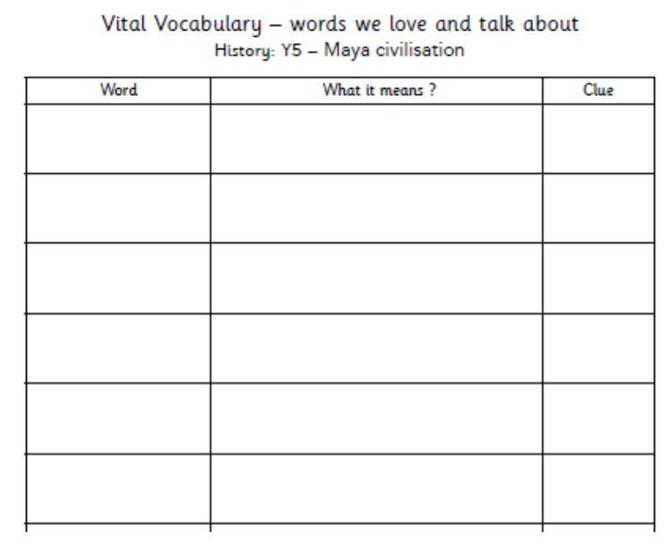
History – Impact
Assessing Knowledge and Understanding
Cumulative Quizzing
At the start of each module, pupils undertake a short quiz, using platforms such as Socrates in Years 3-6 or a verbal assessment (Years 1-2), to establish prior knowledge and understanding of the module content. Throughout each module pupils continually revisit previous content and quizzing to reinforce key knowledge and vocabulary. At the end of the module, pupils take another quiz to check their understanding and Knowledge. Baseline scores are compared with end of module results with an aim for 80% retention by most pupils.
Pupil Book Study
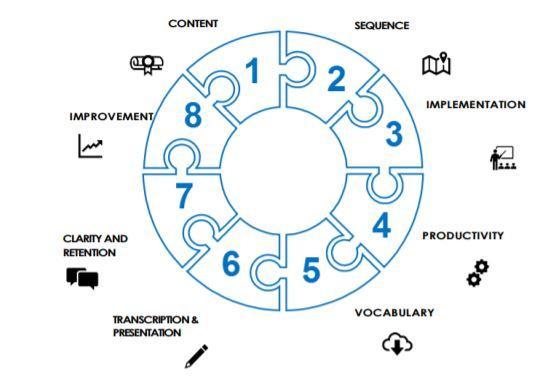
Senior leaders and subject leaders regularly undertake book studies to monitor the effectiveness of teaching and learning. This includes sessions with small groups of pupils using questioning to check and ensure information and knowledge is acquired and understood with increasing confidence. Feedback is given to teaching staff to inform future planning.
